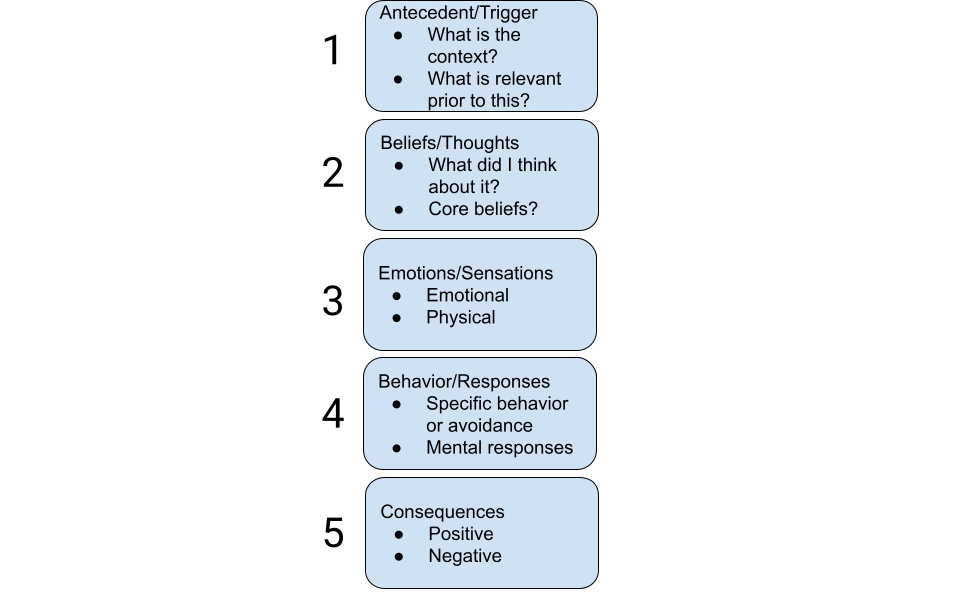
This is the shortened version of the article, the “PRO Version” available here.
Functional Assessment Defined
A functional assessment (or analysis, FA) is a framework that clinicians use to assess and plan treatment. It is simply “any empirical demonstration of a cause-effect relation,” its purpose being “to determine which sources of reinforcement account for problem behavior [or thought] on an individual basis” (Iwata and Dozier, 2008). It asks one key question:
“What is the function of a behavior/response of an individual?”
My 5 Step FA With Clients
In clinical work, I use an advanced model that considers many factors over all sessions that I have with a client. However, a shortened overview is as follows:

Give it a try. What’s something you are seeking a solution in? Pause to evaluate it using a brief functional assessment.
For example, if you dislike losing your temper with your kids and want to change it, then find an occurrence where this happened and plug it in like in this example:
- Came home from work- stressful day; boss said there will be layoffs. Kids were yelling at each other.
- I thought, “I’m going to be next; I’m too old; they want the young and newly educated.” “This connects to my core fear of being passed over and missing out on life.” “I can’t take this anymore.”
- I felt sad, angry, and lonely. My stomach was in knots all day, and my chest was tight.
- Overeating at lunch. Ruminated on my next career all day while working. Kids were loud and yelling- screamed at them and went to my room. Drank alcohol. Forced a smile at dinner.
- No positive results. Negative is that family becomes more distant and feels less safe. I feel shame and terrible about myself.
A more advanced assessment will consider many other factors. Simply put, though, this gives an idea of what needs to change. Then in more simple cases you can address the necessary pieces, like with this example, some of the obvious ones would be:
- Addressing overeating and substance consumption to change mood
- Working with negative thoughts and beliefs about work and personal worth
- Processing emotions instead of “stuffing” them.
- Consider approaches for relaxation and mindfulness.
Your Turn!
I wish you the best in your journey and hope you can benefit from this powerful tool- or from someone who is expertly trained in using it (see my resources page).








Leave a Reply